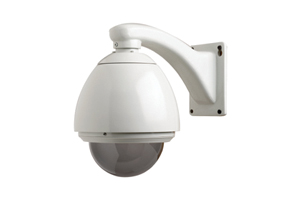Difference between revisions of "D-Link DCS-920"
From LinuxMCE
| Line 1: | Line 1: | ||
| − | |||
{{Versioninfo}} | {{Versioninfo}} | ||
| − | |||
[[Category: IP Cameras]] | [[Category: IP Cameras]] | ||
[[Image:DCS-70.jpg|right]] | [[Image:DCS-70.jpg|right]] | ||
| − | = Status = | + | === Status === |
The D-Link DCS-920 works for video, but zoom is not yet implemented. | The D-Link DCS-920 works for video, but zoom is not yet implemented. | ||
| − | = Features = | + | |
| + | ;Note: I had to set my camera to 640X480 to avoid losing the connection every 1-2 minutes. | ||
| + | |||
| + | {{p}} | ||
| + | |||
| + | === Features === | ||
* Browser based | * Browser based | ||
* 802.11g WLAN | * 802.11g WLAN | ||
| Line 20: | Line 23: | ||
* compatible with DCS-70 outdoor mount | * compatible with DCS-70 outdoor mount | ||
| − | =IP Cameras and Motion Wrapper= | + | {{p}} |
| + | |||
| + | == Adding IP Cameras and Motion Wrapper == | ||
IP cameras can be used under the Motion Wrapper to enable it to detect motion and alert based on that function. | IP cameras can be used under the Motion Wrapper to enable it to detect motion and alert based on that function. | ||
| − | |||
| − | + | === Add Motion Wrapper === | |
* Open your [[LinuxMCE Admin Website|webadmin]] control panel and on the left pane at the bottom click on "Show Device Tree". | * Open your [[LinuxMCE Admin Website|webadmin]] control panel and on the left pane at the bottom click on "Show Device Tree". | ||
| Line 36: | Line 40: | ||
* Click the pull down box under "Device Template" and find the template labeled "Motion Wrapper", select this item and click "Pick Device Template" | * Click the pull down box under "Device Template" and find the template labeled "Motion Wrapper", select this item and click "Pick Device Template" | ||
| + | |||
| + | === Add IP Camera as child of the Motion Wrapper === | ||
* Now on the right pane, click "Create Child Device" again. Enter your IP Cameras IP address and MAC address here, then click "Pick Device Template" | * Now on the right pane, click "Create Child Device" again. Enter your IP Cameras IP address and MAC address here, then click "Pick Device Template" | ||
| Line 48: | Line 54: | ||
'''PASSWORD:''' <password you assigned> | '''PASSWORD:''' <password you assigned> | ||
| + | |||
| + | == Checking for video == | ||
* Now click save at the bottom, RESTART your router, and on your mce interface go to "Security" -> "Generic Analog Camera" to see if it's working. | * Now click save at the bottom, RESTART your router, and on your mce interface go to "Security" -> "Generic Analog Camera" to see if it's working. | ||
Revision as of 09:26, 21 October 2012
| Version | Status | Date Updated | Updated By |
|---|---|---|---|
| 710 | Unknown | N/A | N/A |
| 810 | Unknown | N/A | N/A |
| 1004 | Unknown | N/A | N/A |
| 1204 | Unknown | N/A | N/A |
| 1404 | Unknown | N/A | N/A |
| Usage Information | |||
Contents
Status
The D-Link DCS-920 works for video, but zoom is not yet implemented.
- Note
- I had to set my camera to 640X480 to avoid losing the connection every 1-2 minutes.
Features
- Browser based
- 802.11g WLAN
- 10/100mbit LAN
- 30fps max
- active motion detector
- MPEG4 compression
- UPnP, DynDNS
- Real-Time Live Video
- compatible with DCS-70 outdoor mount
Adding IP Cameras and Motion Wrapper
IP cameras can be used under the Motion Wrapper to enable it to detect motion and alert based on that function.
Add Motion Wrapper
- Open your webadmin control panel and on the left pane at the bottom click on "Show Device Tree".
- In the left pane Click on "core/hybrid".
- On the right pane near the top, click on "Create Child Device", then leave everything blank and click "Pick Device Template" button.
- Click the pull down box under "Device Template" and find the template labeled "Motion Wrapper", select this item and click "Pick Device Template"
Add IP Camera as child of the Motion Wrapper
- Now on the right pane, click "Create Child Device" again. Enter your IP Cameras IP address and MAC address here, then click "Pick Device Template"
- Click the pull down box under "Device Template" and use "Generic Motion IP Camera", then click "Pick Device Template"
- Now on the right window pane, under Device Info fill in your camera's MAC address, it is located on a sticket on the back of the camera.
- Still on the right window pane, scroll down to "Device Data" and fill in the following
PATH: /VIDEO.CGI
TCP PORT: 80
USERNAME: <username you assigned>
PASSWORD: <password you assigned>
Checking for video
- Now click save at the bottom, RESTART your router, and on your mce interface go to "Security" -> "Generic Analog Camera" to see if it's working.
